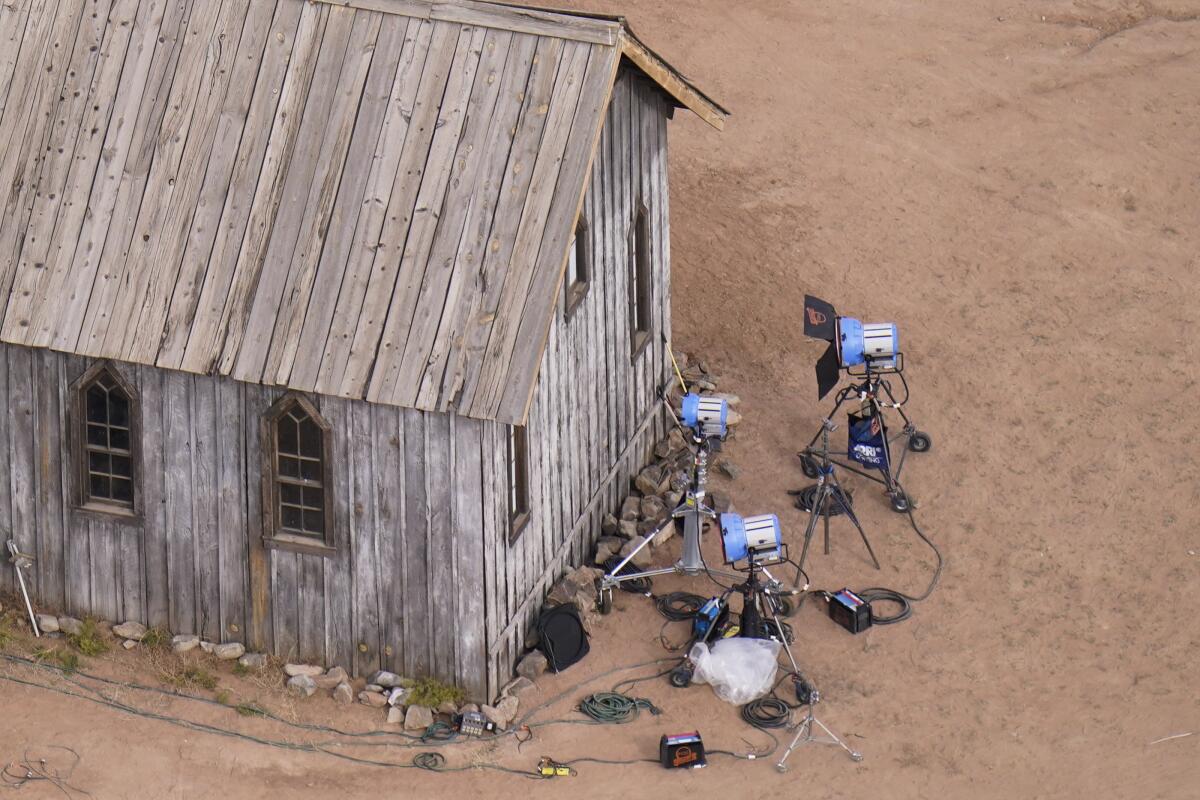Rust Movie Productions denies allegations of wrongdoing by New Mexico safety agency

Rust Movie Productions LLC, the company behind the low-budget western Halyna Hutchins was working on when she was killed, has denied allegations by New Mexico’s workplace health and safety bureau that led to a $136,793 fine.
The company behind the movie “Rust” said in a filing to the New Mexico Environment Department’s Occupational Health and Safety Bureau on Tuesday afternoon that the penalties levied against it were not warranted.
The company listed several other defenses, including that it relied on specialty contractors like armorer Hannah Gutierrez Reed, that it was not the controlling employer at the worksite and that any violation of regulations was caused by “unpreventable employee misconduct.”
Safety questions had been raised about another film involving two of the producers.
The responsibilities of an armorer on a movie set are to “ensure no live ammunition is on the site — as expressly prohibited by both (Rust Movie Productions) and Bonanza Creek Ranch — or to ensure that no live ammunition is acquired or inadvertently loaded into a firearm,” the company wrote in its filing.
Representatives of Rust Movie Productions and Gutierrez Reed did not immediately respond to requests for comment.
The New Mexico agency in April levied its maximum fine against the producers six months after actor Alec Baldwin accidentally fired a live round during a rehearsal last fall, fatally shooting cinematographer Hutchins and injuring director Joel Souza.
The killing shocked the film industry and led to a push to regulate guns on movie sets. The agency accused the production managers of “plain indifference” to employee safety and said management knew firearm safety procedures were not being followed on set.
In its 21-page answer, Rust Movie Productions denied it had been indifferent to employee safety, saying live ammunition was expressly prohibited on set and that policy had been communicated to everyone on site.
“Specialized independent contractors were contracted with specifically to train individuals in firearms safety and operation, procure firearms and blank and dummy ammunition, safely manage the transfer and use of firearms on the Site, and conduct safety meeting on days where the firing of blank ammunition was to occur,” Rust Productions said in its filing. It noted that blank ammunition was used on eight of the 11 days of production.
The company denied that Gutierrez Reed was ever instructed to focus less on her responsibilities as armorer, or that the actors or stunt crew had not received necessary training, saying all actors and stunt crew received firearms training.
Gutierrez Reed alleged in text message exchanges with the production that she had been stretched in the two jobs she had been hired to do: armorer in charge of guns and gun safety, as well as an assistant to the prop master Sarah Zachry, who was in charge of the props used to replicate 1880s Kansas on the film production set south of Santa Fe.
The company said Gutierrez Reed’s duties on props were secondary and were offered as a way to boost her earnings on days when firearms were not being used.
Rust Movie Productions (RMP) also said union representatives were always present on set and were involved in disagreements with crew on living conditions during the shoot. According to The Times’ timeline of events, camera operator Lane Luper and other members of the “Rust” camera team quit the production on the morning Hutchins died amid concerns over safety on set intensified by two previous accidental gun discharges.
In its answer to the state agency, RMP said Luper had resigned because the company refused his request to be paid for lodging accommodations, which it said were unnecessary and not required by the union.
The company said it had not received a complaint from the union about weapons-related safety problems and added that two accidental blank firings occurred involving guns that were “in the hands of the very people meant to handle firearms with blank ammunition on set.”
Inside the business of entertainment
The Wide Shot brings you news, analysis and insights on everything from streaming wars to production — and what it all means for the future.
You may occasionally receive promotional content from the Los Angeles Times.
More to Read
Inside the business of entertainment
The Wide Shot brings you news, analysis and insights on everything from streaming wars to production — and what it all means for the future.
You may occasionally receive promotional content from the Los Angeles Times.











